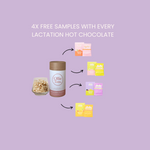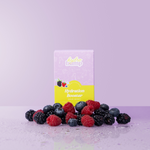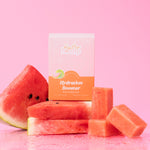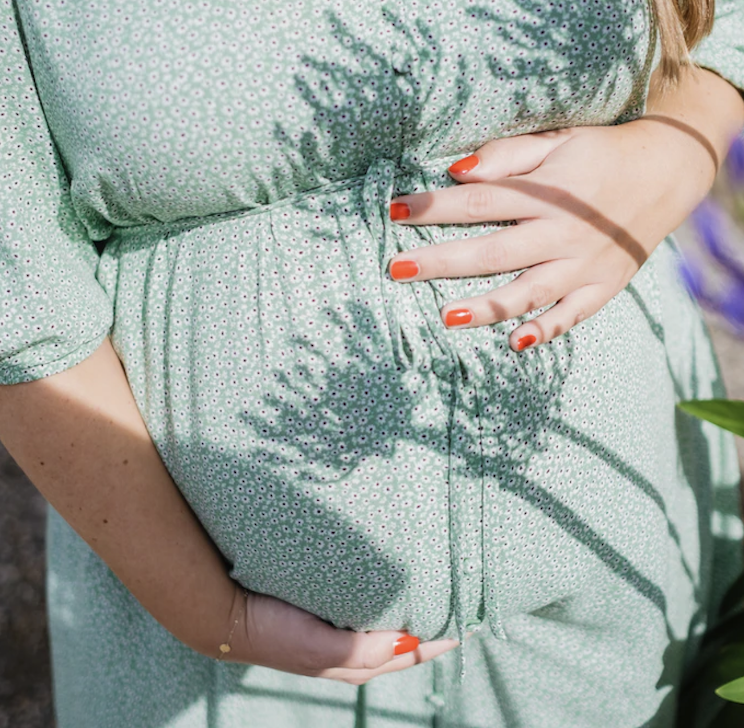Hydration is crucial during pregnancy as it supports various physiological processes. Your body requires additional fluids to accommodate the increased blood volume, amniotic fluid, and the needs of the developing baby. Adequate hydration is essential for:
- Maintaining overall health
- Preventing common pregnancy-related issues such as constipation and urinary tract infections
- Ensuring optimal fetal development
Electrolytes play a vital role in hydration and bodily functions. These minerals, including sodium, potassium, chloride, calcium, and magnesium, are critical for:
- Regulating fluid balance
- Supporting muscle function
- Facilitating nerve signaling
Understanding the significance of electrolytes can assist you in making informed decisions about your hydration during pregnancy.
Note: To delve deeper into why hydration is particularly important for pregnant women and to gain insights into how it works, I recommend reading this informative article on Hydration in Pregnancy by HydroBump.
The Importance of Electrolytes for Pregnant Women
Electrolytes are essential minerals and ions that play a crucial role in maintaining proper hydration and bodily functions. During pregnancy, electrolytes become even more important because they support both the mother and the developing baby.
What Are Electrolytes and Why Are They Important During Pregnancy?
Electrolytes help regulate fluid balance, muscle function, and nerve signaling. They also contribute to maintaining blood pH levels and ensuring that nutrients are effectively transported throughout the body. For pregnant women, these functions become vital as they directly impact fetal development and maternal health.
How Electrolytes Benefit Pregnant Women
Maintaining the right electrolyte balance can aid in the maintenance and proper bodily functions such as:
- Hydration status: Proper hydration supported by electrolytes helps in managing symptoms like morning sickness.
- Muscle Function: Adequate levels of electrolytes ensure optimal muscle function, which is important during labor.
- Blood Volume Expansion: Electrolyte balance aids in the increased blood volume required during pregnancy.
- Nutrient Transport: Efficient transport of nutrients to the developing fetus.
Essential Electrolyte Minerals for Pregnant Women
During pregnancy, it's important to focus on these key electrolyte minerals:
Sodium (Na):
- Regulates fluid balance.
- Supports nerve function.
Potassium (K):
- Helps with muscle contractions.
- Maintains normal heart rhythm.
Chloride (Cl):
- Works with sodium to maintain fluid balance.
- Essential for digestion as it forms part of stomach acid.
Calcium (Ca):
- Critical for bone development in the fetus.
- Reduces risks of hypertension and preeclampsia in mothers.
Magnesium (Mg):
- Supports over 300 biochemical reactions in the body.
- Prevents complications like postpartum depression and anxiety.
Balancing these essential minerals is key to a healthy pregnancy journey. Understanding how each electrolyte contributes can empower you to make informed dietary choices, ensuring both you and your baby receive optimal nutrition.

For more details on hydration solutions tailored for pregnancy, consider exploring HydroBump products that offer balanced electrolyte options. These products are designed to support your electrolyte needs during pregnancy, providing the necessary minerals for a healthy journey.
Additionally, it's important to be aware of the return policy when purchasing such products. HydroBump's return policy allows you to return items within 30 days of purchase for a full refund, minus shipping costs. This ensures that you can try out our products with peace of mind.
Proper intake of these electrolytes can significantly enhance your pregnancy experience by reducing potential risks and promoting overall well-being.
Maintaining Electrolyte Balance and Hydration Levels During Pregnancy
Common Causes of Electrolyte Imbalances in Pregnant Women
Electrolyte imbalances during pregnancy can arise from various factors:
- Increased Fluid Needs: The body demands more fluids to support the growing fetus, leading to a higher risk of dehydration.
- Morning Sickness: Nausea and vomiting can result in significant fluid and electrolyte loss.
- Medical Conditions: Issues like cardiovascular disease, kidney problems, and eating disorders can exacerbate electrolyte imbalances.
- Medications: Certain prescriptions such as diuretics or antibiotics may affect electrolyte levels.
The Dual Role of Adequate Hydration
Proper hydration plays an essential role in maintaining electrolyte balance. When you stay well-hydrated:
- Fluid Balance: Fluids help transport electrolytes throughout the body, ensuring that cells function optimally.
- Prevention of Dehydration: Adequate hydration mitigates the risk of dehydration-related complications, which are particularly dangerous during pregnancy.
For optimal hydration, it's recommended that pregnant women consume 8-10 cups of fluids daily. This requirement increases if experiencing symptoms like vomiting or diarrhea.
Recommended Dietary Approaches and Lifestyle Habits
To prevent dehydration and maintain optimal electrolyte levels:
Balanced Diet
Incorporate high-electrolyte foods such as:
- Legumes
- Green leafy vegetables
- Potatoes
- Poultry
- Fish
- Milk
- Yogurt
- Nuts
- Celery
- Lettuce
- Olives
Hydrating Drinks
Opt for natural hydrating beverages like:
- Coconut water
- Herbal teas (confirming their safety profile in pregnancy and breastfeeding first!)
- Natural fruit juices
over sugary or caffeinated drinks.
Prenatal Multivitamins
These supplements can provide essential nutrients that might be lacking in your diet. We focus particularly on folate in the first 12 weeks of pregnancy and at least 1 month before conception.
Regular Monitoring
Keep an eye on your hydration levels by checking for signs of dehydration like dry mouth or dark-colored urine.
For a practical solution to ensure adequate hydration during pregnancy, you may find products like the Hydration Booster by HydroBump beneficial. This product includes all the necessary ingredients to maintain optimal hydration levels based on recommended daily intakes and Australian guidelines.
Additionally, breastfeeding mothers can refer to the HydroBump guide on boosting and maintaining milk supply for comprehensive information on this aspect of postpartum care.
Maintaining a steady intake of fluids alongside these dietary approaches will significantly aid in balancing your electrolytes during pregnancy.
Benefits of Electrolyte Drinks for Hydration in Pregnancy
Electrolyte drinks are a convenient and effective way to fulfill the increased fluid and electrolyte needs during pregnancy. Unlike plain water, these beverages provide essential minerals such as sodium, potassium, calcium, and magnesium that support various physiological functions. They can:
- Enhance hydration: Pregnant women need more fluids to support the increased blood volume and amniotic fluid. Electrolyte drinks ensure these fluids are absorbed efficiently.
- Reduce symptoms like morning sickness: The balanced electrolyte content helps relieve nausea, a common issue during pregnancy.
- Prevent dehydration: Conditions like vomiting and diarrhea can cause significant fluid loss. Electrolyte drinks can quickly replenish lost fluids and minerals.
Hydrating effectively with electrolyte drinks also helps maintain proper muscle function, reduce cramps, and support overall well-being. When choosing an electrolyte drink, it is important to pick options low in sugar and free from artificial sugars.
For more insights on how to manage your hydration needs during pregnancy, you may find valuable information in HydroBump Health Hub, which also discusses the importance of proper hydration while breastfeeding.
If you have any specific questions or need personalized advice, feel free to contact us.
Choosing the Best Electrolyte Drinks for Pregnant Women: Top Recommendations in Australia
Criteria for Selecting Safe and High-Quality Electrolyte Drinks
When choosing electrolyte drinks during pregnancy, it's essential to prioritize safety and nutritional value. Consider the following criteria:
- Ingredient Transparency: Opt for products that list all ingredients clearly. Avoid drinks with artificial sweeteners and colors.
- Electrolyte Content: Ensure the drink provides a balanced mix of key electrolytes such as sodium, potassium, magnesium, and calcium.
- Sugar Levels: Low-sugar or natural sugar options are preferable to prevent excessive calorie intake.
- Additional Nutrients: Some electrolyte drinks include added vitamins like Vitamin C, which can be beneficial.
- Certification and Testing: Look for products that have been tested and certified by relevant health authorities. Opting for products manufactured in pharmaceutical-grade facilities ensures rigorous safety testing and profiles. HydroBump is manufactured in a pharmaceutical-grade Australian Manufacturing Facility - we don’t compromise on safety.
Top Recommended Products in the Australian Market
Here are some top-rated electrolyte drinks available in Australia that pregnant women can consider:
- HydroBump Hydration Boosters Nutritional Value: Rich in essential electrolytes like sodium, potassium, and magnesium.
- Ingredients: Natural flavors with no artificial sugars.
- Why It Stands Out: It is specifically formulated by an Australian Doctor for pregnant women, making it a highly relevant choice. Check out what other women have said about their HydroBump experience here.
- Why It Stands Out: Certified gluten-free and free from common allergens.
- Endura Rehydration Low Carb Fuel Nutritional Value: Balanced levels of sodium, potassium, calcium, and magnesium with low carbohydrate content.
- Ingredients: Includes natural sweeteners and flavors.
- Why It Stands Out: Ideal for those looking to manage their carb intake while staying hydrated.
- Coconut Water (Natural) Nutritional Value: Naturally rich in potassium and contains small amounts of sodium, calcium, and magnesium.
- Ingredients: Pure coconut water without any added sugars or preservatives.
- Why It Stands Out: A natural option that is easily accessible and hydrating.
To gain more insights on how hydration impacts pregnancy health, including the importance of electrolyte drinks, you can refer to this blog post which also discusses the connection between hydration and ultrasounds during pregnancy.
Choosing the right electrolyte drink can make a significant difference in maintaining hydration levels during pregnancy. Paying attention to ingredient quality and electrolyte content ensures both safety and effectiveness.
Making Your Own Electrolyte Beverages at Home
Homemade electrolyte drinks for pregnancy offer a natural and customizable alternative to store-bought options. Preparing your own beverages allows you to control the ingredients, ensuring they are free from artificial additives and excessive sugars.
Benefits of Preparing DIY Electrolyte Beverages
- Natural Ingredients: Use fresh fruits, vegetables, and natural sweeteners.
- Cost-Effective: Save money compared to purchasing commercial electrolyte drinks.
- Customization: Tailor the flavor and nutrient content to your preferences and needs.
- Safety: Avoid allergens and questionable additives that may not be suitable for pregnancy.
Adequate hydration is crucial during pregnancy, making it essential to include hydration requirements in your electrolyte beverage preparation. Water accounts for approximately 60% of body weight, and maintaining water balance is even more critical during this period.
Tried-and-True Recipes Suitable for Pregnant Women
Lemon Coconut Electrolyte Drink
Ingredients:
- 2 cups coconut water
- 1/4 cup fresh lemon juice
- 1 tablespoon honey or maple syrup
- A pinch of sea salt
Instructions:
- Mix all ingredients in a large glass or bottle.
- Shake well until honey or syrup is fully dissolved.
- Serve chilled or over ice.
Orange and Ginger Hydration Drink
Ingredients:
- 2 cups water
- 1/2 cup fresh orange juice
- 1 teaspoon grated ginger
- 1 tablespoon honey
- A pinch of sea salt
Instructions:
- Combine all ingredients in a pitcher.
- Stir until the honey is well-mixed.
- Refrigerate for an hour before drinking to allow the flavors to meld.
Another recipe worth trying is:
Berry Salt Water Drink
Ingredients:
- 1 cup mixed berries (strawberries, blueberries, raspberries)
- 3 cups water
- 1 tablespoon raw honey
- A pinch of Himalayan pink salt
Instructions:
- Blend berries with water until smooth.
- Strain the mixture into a pitcher to remove seeds and pulp.
- Add honey and salt, stirring until fully dissolved.
- Chill before serving.
Creating these homemade electrolyte drinks ensures you stay hydrated while providing the necessary nutrients for both you and your baby during pregnancy. To further understand the importance of hydration and electrolytes during this period, you can meet Dr. Kitty, the founder of HydroBump, who shares valuable insights as both a healthcare professional and a mother.
Other Hydration Strategies to Support a Healthy Pregnancy
Staying well-hydrated throughout pregnancy is essential for both mother and baby. Here are some additional tips to ensure optimal hydration:
- Drink Water Regularly
Aim for 8-10 cups of water daily. Carry a reusable water bottle to make it easier to sip throughout the day.
- Include High-Electrolyte Foods
Foods rich in electrolytes play a significant role in maintaining hydration. Incorporate items like:
- Leafy green vegetables: Spinach, kale
- Fruits: Bananas, oranges
- Dairy products: Milk, yogurt
- Legumes: Beans, lentils
- Nuts and seeds: Almonds, chia seeds
- Hydrating Beverages
Besides water, drinks like coconut water and natural fruit juices can help maintain electrolyte balance.
Hydration strategies vary by individual needs and preferences, but these tips offer practical ways to maintain proper hydration levels during pregnancy.
The Role of Dietary Supplements
Dietary supplements can provide an extra boost, especially if you're struggling with morning sickness or other conditions that affect hydration. Prenatal vitamins often include essential electrolytes like calcium and magnesium.
Breastfeeding and Hydration
Breastfeeding mothers need increased fluid intake to support milk production. Aim for about 10 and a bit cups of fluids per day. Electrolyte-rich foods and beverages are particularly useful during this stage.
Conclusion
Both adequate hydration and electrolyte balance are important for a healthy pregnancy. They are crucial for supporting your well-being and the development of your baby.
Key Takeaways:
- Hydration and Pregnancy: Make sure to drink 8-10 cups of hydrating fluids every day.
- Electrolytes: Keep a good balance of essential electrolyte minerals like sodium, potassium, calcium, magnesium, and chloride.
Action Steps:
- Include electrolyte-rich foods in your meals, such as leafy greens, legumes, dairy products, and nuts.
- Try out electrolyte drinks as a convenient way to stay hydrated.
- Experiment with creating your own electrolyte beverages using natural ingredients.
By maintaining this balance, you can better manage common pregnancy symptoms and support the health of both you and your baby. Stay proactive in learning about hydration strategies to have a smooth pregnancy journey.











